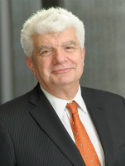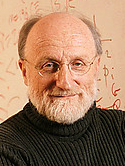The tyrosine phosphatase PTPRD is a tumor suppressor that is frequently inactivated and mutated in glioblastoma and other human cancers Journal Article
| Authors: | Veeriah, S.; Brennan, C.; Meng, S.; Singh, B.; Fagin, J. A.; Solit, D. B.; Paty, P. B.; Rohle, D.; Vivanco, I.; Chmielecki, J.; Pao, W.; Ladanyi, M.; Gerald, W. L.; Liau, L.; Cloughesy, T. C.; Mischel, P. S.; Sander, C.; Taylor, B.; Schultz, N.; Major, J.; Heguy, A.; Fang, F.; Mellinghoff, I. K.; Chan, T. A. |
| Article Title: | The tyrosine phosphatase PTPRD is a tumor suppressor that is frequently inactivated and mutated in glioblastoma and other human cancers |
| Abstract: | Tyrosine phosphorylation plays a critical role in regulating cellular function and is a central feature in signaling cascades involved in oncogenesis. The regulation of tyrosine phosphorylation is coordinately controlled by kinases and phosphatases (PTPs). Whereas activation of tyrosine kinases has been shown to play vital roles in tumor development, the role of PTPs is much less well defined. Here, we show that the receptor protein tyrosine phosphatase delta (PTPRD) is frequently inactivated in glioblastoma multiforme (GBM), a deadly primary neoplasm of the brain. PTPRD is a target of deletion in GBM, often via focal intragenic loss. In GBM tumors that do not possess deletions in PTPRD, the gene is frequently subject to cancer-specific epigenetic silencing via promoter CpG island hypermethylation (37%). Sequencing of the PTPRD gene in GBM and other primary human tumors revealed that the gene is mutated in6%of GBMs,13% of head and neck squamous cell carcinomas, and in 9% of lung cancers. These mutations were deleterious. In total, PTPRD inactivation occurs in >50% of GBM tumors, and loss of expression predicts for poor prognosis in glioma patients. Wild-type PTPRD inhibits the growth of GBM and other tumor cells, an effect not observed with PTPRD alleles harboring cancer-specific mutations. Human astrocytes lacking PTPRD exhibited increased growth. PTPRD was found to dephosphorylate the oncoprotein STAT3. These results implicate PTPRD as a tumor suppressor on chromosome 9p that is involved in the development of GBMs and multiple human cancers. |
| Keywords: | signal transduction; protein kinase b; s6 kinase; controlled study; protein phosphorylation; unclassified drug; gene mutation; gene sequence; human cell; methylation; promoter region; gene deletion; mutation; squamous cell carcinoma; cancer patient; neoplasms; actin; gene targeting; stat3 protein; gene expression; astrocyte; chromosome 9p; lung cancer; phosphorylation; wild type; dna methylation; carcinogenesis; cancer inhibition; tumor suppressor gene; gene expression regulation, neoplastic; regulatory mechanism; messenger rna; epigenetics; cpg island; glioblastoma; telomerase reverse transcriptase; stat3 transcription factor; glioblastoma multiforme; ras protein; gene inactivation; glyceraldehyde 3 phosphate dehydrogenase; protein tyrosine phosphatase; gene silencing; protein dephosphorylation; receptor-like protein tyrosine phosphatases, class 2; tumor suppressor protein; mitogen activated protein kinase kinase; short hairpin rna; dna methyltransferase 1; head and neck carcinoma; dna methyltransferase 3b; protein e6; protein e7; protein ptprd; suppressor of cytokine signaling 3; p16 ink4a gene; ptprd gene |
| Journal Title: | Proceedings of the National Academy of Sciences of the United States of America |
| Volume: | 106 |
| Issue: | 23 |
| ISSN: | 0027-8424 |
| Publisher: | National Academy of Sciences |
| Date Published: | 2009-06-09 |
| Start Page: | 9435 |
| End Page: | 9440 |
| Language: | English |
| DOI: | 10.1073/pnas.0900571106 |
| PUBMED: | 19478061 |
| PROVIDER: | scopus |
| PMCID: | PMC2687998 |
| DOI/URL: | |
| Notes: | --- - "Cited By (since 1996): 11" - "Export Date: 30 November 2010" - "CODEN: PNASA" - "Source: Scopus" |
Altmetric
Citation Impact
BMJ Impact Analytics
MSK Authors
Related MSK Work























